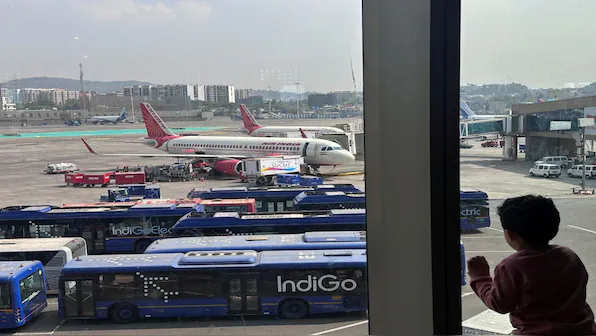Introduction: A Costly Geopolitical Standoff for Indian Airlines
The escalating tensions between India and Pakistan have led to significant disruptions in international air travel. On April 25, Pakistan announced it would shut its airspace to Indian airlines, resulting in a sharp rise in operational costs for Indian carriers. This airspace closure is expected to add an extra Rs 77 crore in weekly expenses due to longer flight durations and increased fuel consumption.
Airspace Curbs Result in Longer Flight Times

Indian airlines, especially those operating out of north Indian cities like Delhi, are set to face higher costs as the closure of Pakistan’s airspace forces flights to take alternative, longer routes. Flights to destinations such as North America, Europe, and the Middle East are seeing an increase in flying time of up to 1.5 hours. For example, a flight to North America, typically lasting around 16 hours, will now take an additional 1.5 hours, costing airlines an extra Rs 29 lakh per flight, including landing and parking fees.
Operational Impact: Increased Fuel and Crew Challenges
The increased flying hours not only lead to higher fuel costs but also introduce logistical challenges for airlines. The extended flight time creates complications for aircraft availability and crew flying duty time limitations. This makes it difficult for airlines to maintain scheduled operations without adjustments.
Airline Adjustments: Schedule Changes and Cancellations
Several Indian airlines, including IndiGo, Air India, and SpiceJet, are already adjusting their schedules in response to the airspace restrictions. IndiGo, for instance, has canceled flights to Almaty and Tashkent due to rerouting limitations caused by the airspace ban. Other airlines, including Air India Express and Akasa Air, have not yet announced cancellations but are monitoring the situation closely.
Cost Breakdown: Weekly and Monthly Additional Expenses
As per aviation industry calculations, the total additional costs for Indian airlines could exceed Rs 306 crore per month, with the weekly increase alone amounting to approximately Rs 77 crore. For the nearly 800 weekly flights that operate from North India to international destinations, the additional fuel and operational costs add up quickly, especially with the extended flight durations.
Conclusion: The Geopolitical Toll on the Aviation Industry
The decision to close airspace is a significant burden on Indian airlines, which are already facing the challenges of rising fuel prices and logistical constraints. With the continued closure of Pakistan’s airspace, Indian carriers may have to adjust their operations further, potentially leading to more flight cancellations and schedule modifications. The aviation industry is closely monitoring the situation, with a focus on minimizing the operational impact while navigating the geopolitical tensions in the region.
For more updates on the impact of international relations on the airline industry, check out our article on Understanding the Impact of Geopolitical Tensions on Air Travel.









